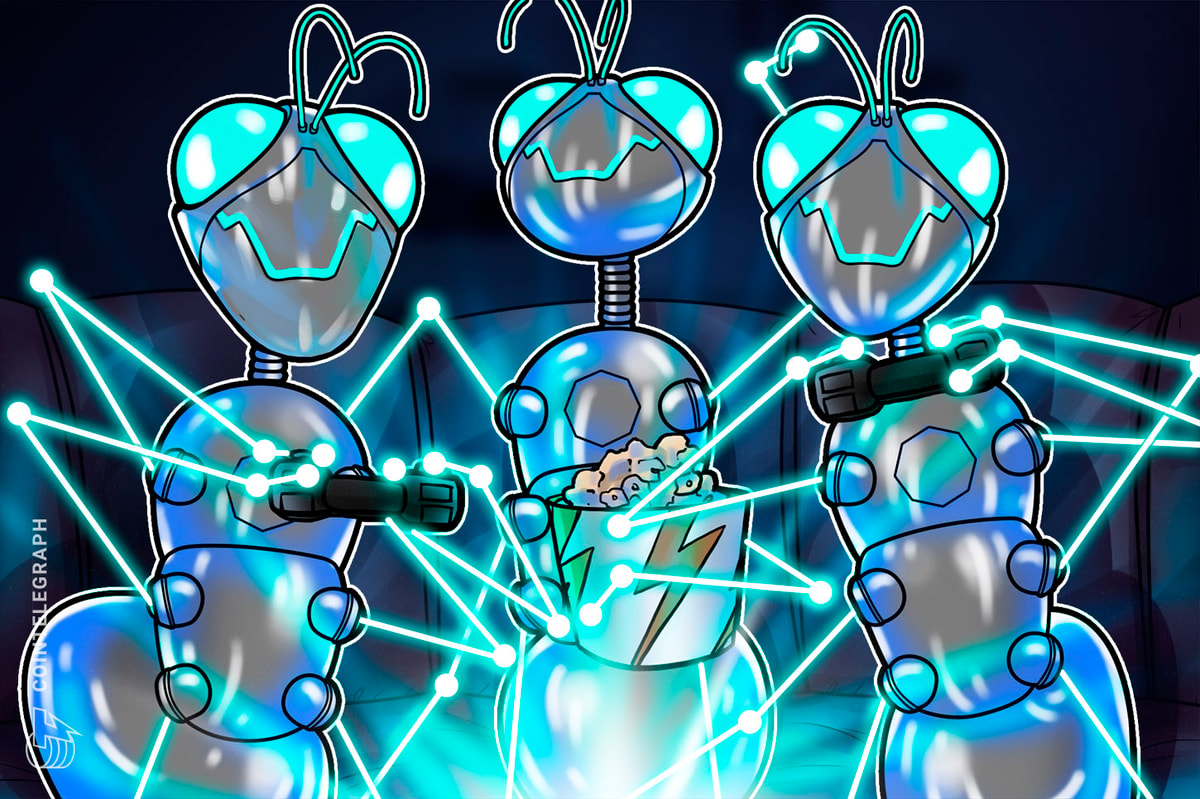The world of artificial intelligence (AI) has become crowded by a small group of Big Tech companies vying for the largest cut of the market. This could lead to an elite few gatekeeping arguably the world’s most powerful technology.
However, two companies are looking to shift the direction of the AI space toward decentralization using Web3 technologies.
Morpheus, an open-source network building decentralized AI smart agents, announced its official launch on May 8, with over $350 million in total locked value (TVL), along with its collaboration with 6079 — an emerging player in the independent AI movement.
Morpheus was developed by a collective of more than 200 open-source contributors and has already had over 5,000 users staking Ether (ETH) to its capital contract.
According to the project, its model aims to foster a more equitable funding environment for projects within the decentralized AI space.
In tandem with Morpheus’s launch, 6079 unveiled its proof-of-inference protocol (PoIP) standard, designed to democratize access to AI services and promote trustless AI operations. Already, the project claims to have created millions of impressions and over 50,000 sign-ups for its “Free Think” initiative.
Morpheus contributor David Johnston said he is eager to see PoIP launch in a “fair manner” and that it was developed by the entire community:
“Proof of Inference has a crucial part to play in the development of private, permissionless AI.”
Related: The future of Web3 rewards: The role of AI in better airdrop campaigns
6079 said it is on track to release its PoIP later this year. The protocol will operate as a verification layer between GPU networks and AI applications such as large-language model chatbots, similar to how a captcha system works for websites.
The platform’s lead contributor, Mike Anderson, emphasized the need for decentralized control in the development of AI technologies, cautioning against the consolidation of power among a few dominant entities.
Anderson told Cointelegraph that this marks a “pivotal moment” for the emergence of an AI-focused protocol that is truly by the people, for the people.
“This collaboration is not just about technology — it’s about transforming the ethos of AI development into a permissionless, transparent and participatory process. Our goal is to ignite a global movement where every individual has the power to contribute, innovate and influence the future of AI.”
His co-contributor Jesse Bryan echoed this sentiment, emphasizing the importance of democratizing access to AI technology to ensure a more equitable digital future.
“The choices we make today will shape the world of tomorrow. With the 6079 movement, we are not just advocating for change; we are driving it.”
6079 said it stands for an AI future that “respects the dignity and agency of every individual, upholds the unhindered pursuit of knowledge and ideas and creates a world where the human mind flourishes without constraint.”
The decentralized AI movement has been gaining momentum in the Web3 space, as developers are begining to understand that decentralization could be the key to more unbiased AI algorithms.
Magazine: Pickup artists using AI, deep fake nudes outlawed, Rabbit R1 fail: AI Eye











